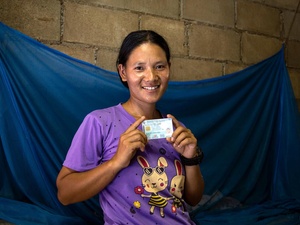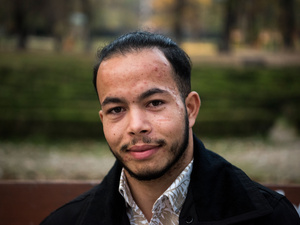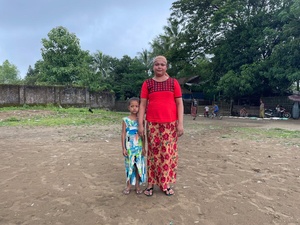Statelessness

Statelessness
Today, millions of people around the world are denied a nationality. They are “stateless.” Without citizenship or nationality, they often aren’t allowed to go to school, see a doctor, get a job, open a bank account, buy a house or even get married.
Stateless people are in every country, including in the United States where experts estimate there are 218,000 people potentially stateless or potentially at risk of statelessness residing across all 50 states.
Stateless individuals in the United States face a range of hardships resulting from their lack of citizenship, including prolonged or multiple periods of detention, perpetual reporting requirements, difficulty retaining employment, indefinite family separation, and lack of access to identity documentation or bank accounts.
In the United States and everywhere, they deserve the chance to acquire a nationality. The right to a nationality is a human right.
What is statelessness?
The 1954 Convention Relating to the Status of Stateless Persons establishes the legal definition for stateless persons as “[a] person who is not considered as a national by any State under the operation of its law.”. A person’s citizenship and nationality may be determined based on the laws of a country where an individual has significant ties, such as their country of birth and where their parents were born, among others. A person can be born into statelessness. Also, a person can lose citizenship and nationality in a number of ways, including when a country ceases to exist or adopts nationality laws that discriminate against certain groups, which can render the person stateless if they possess no other nationality. The 1954 Convention was followed by the 1961 Convention on the Reduction of Statelessness, which establishes safeguards around conferring and withdrawing citizenship to prevent statelessness.
In the United States, the fact that a person is stateless does not provide them with any benefit or status under U.S. law. If a stateless person in the United States is ordered removed, some of the hardships they might face include:
- Inability to obtain travel documents;
- Long-term family separation due to inability to travel;
- Possibility of being held in immigration detention for months or longer;
- Periodic reporting to immigration authorities on orders of supervision;
- Requirements to request travel documents from all countries to which they may have a claim to citizenship, based on parentage, place of birth, or other tie;
- Requirements to contact third countries to ask their permission to be removed there, regardless of whether that individual has ties to that country; and
- Requirement to apply annually for work authorization.
United Stateless
United Stateless is a national organization led by stateless people whose mission is to build and inspire community among those affected by statelessness and to advocate for their human rights. United Stateless can be contacted at [email protected] or by filling out the contact form on their website.
Key UNHCR Resources









